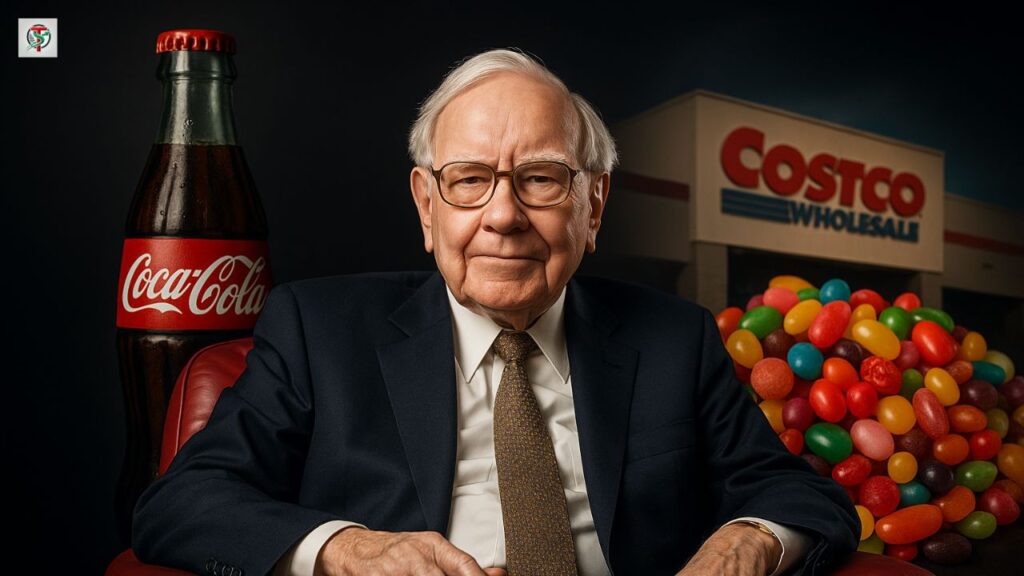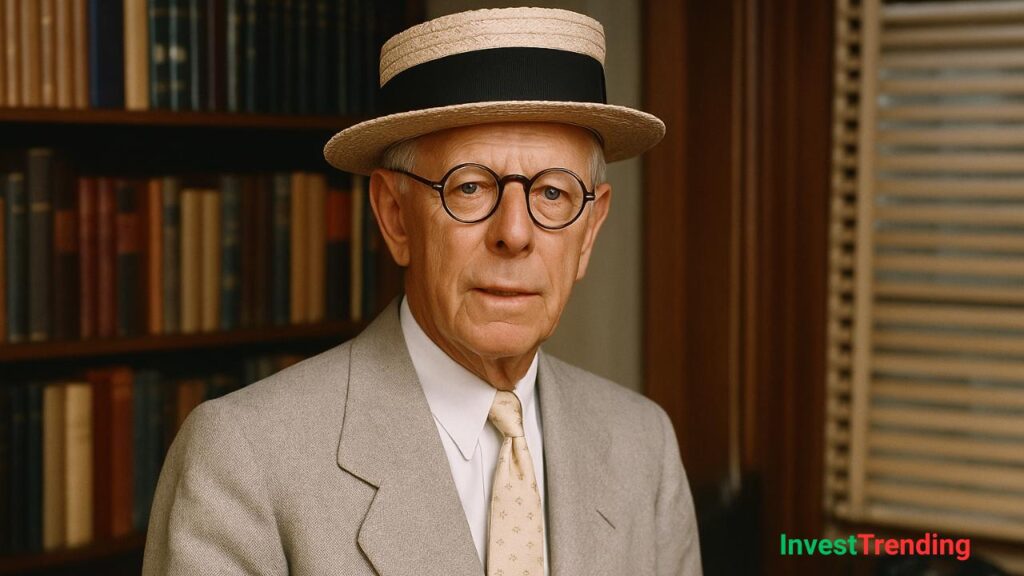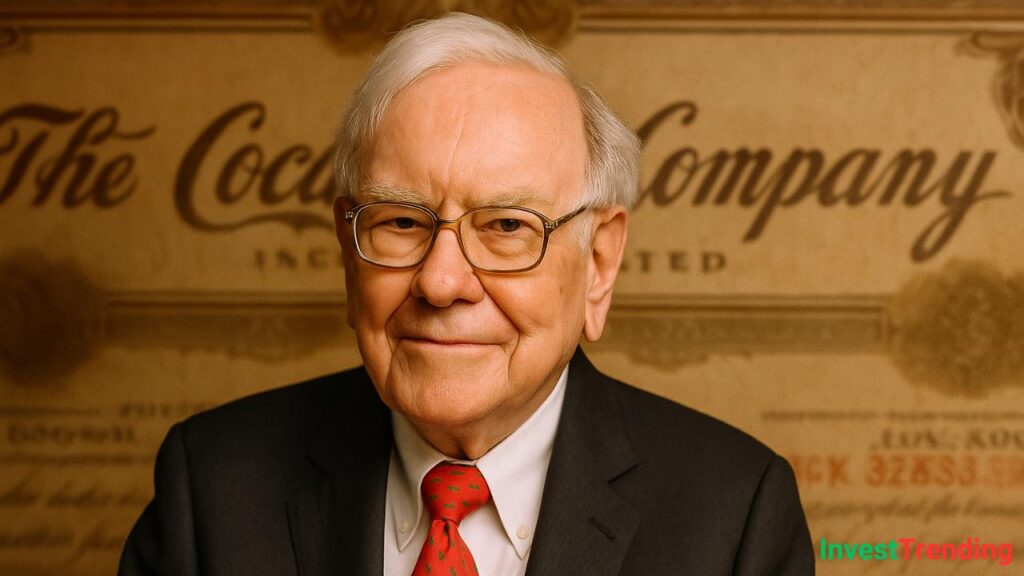
“The big money is not in the buying and the selling… but in the waiting.”
– Charlie Munger
Charlie Munger, the legendary investor, vice chairman of Berkshire Hathaway, and long-time business partner of Warren Buffett, is often regarded as one of the greatest financial minds of all time. While Buffett is the face of Berkshire Hathaway, Munger has played an instrumental role in shaping its investment philosophy and success. His approach to investing, rooted in mental models, rational decision-making, and long-term thinking, has influenced countless investors worldwide.
Early Life and Background
Childhood and Education
Charlie Thomas Munger was born on January 1, 1924, in Omaha, Nebraska, the same city where Warren Buffett was born. Growing up in a middle-class family, Munger was deeply influenced by his father, Alfred Case Munger, a lawyer, who instilled in him a love for logical reasoning and analytical thinking.
Munger enrolled at the University of Michigan to study mathematics but left before completing his degree to serve in the U.S. Army Air Corps during World War II. He later attended Harvard Law School, where he excelled academically and graduated with honors in 1948.
“It’s not supposed to be easy. Anyone who finds it easy is stupid.”
– Charlie Munger
Early Career: From Law to Investing
After Harvard, Munger moved to California and started practicing law, co-founding Munger, Tolles & Olson LLP. Despite his legal success, Munger became increasingly interested in business and investing, realizing that wealth creation was more scalable through investments than through practicing law.
“Spend each day trying to be a little wiser than you were when you woke up.”
– Charlie Munger
Entry into the Investing World
Founding Wheeler, Munger & Co.
In 1962, Munger left law to focus entirely on investing and co-founded the investment firm Wheeler, Munger & Co. During this period, he adopted a high-conviction, concentrated investment strategy, often holding a few outstanding companies rather than diversifying excessively.
His investment style was influenced by Benjamin Graham’s value investing principles but deviated significantly by focusing on high-quality businesses rather than just undervalued stocks.
Meeting Warren Buffett
In 1959, Munger was introduced to Warren Buffett through mutual acquaintances in Omaha. The two quickly bonded over their shared love of rational thinking and investing. Buffett, then a disciple of Graham’s deep-value strategy, was influenced by Munger’s philosophy of paying a fair price for a great business rather than focusing purely on cheap stocks.
“Those who keep learning will keep rising in life.”
– Charlie Munger
Investment Philosophy and Strategies
1. Quality Over Deep Value
Munger’s most significant contribution to Buffett’s evolution as an investor was shifting his focus from “cigar-butt” investing (buying extremely cheap stocks) to acquiring high-quality companies with durable competitive advantages.
2. Mental Models and Multi-Disciplinary Thinking
Munger introduced the concept of mental models—a framework for decision-making that incorporates insights from various disciplines like psychology, economics, physics, and mathematics. He argued that understanding different areas of knowledge helps investors make better, more rational decisions.
3. The Lollapalooza Effect
Munger often spoke about the “Lollapalooza Effect,” where multiple forces combine to create exponential outcomes. He used this concept to identify businesses with powerful moats (competitive advantages) that would compound wealth over time.
4. Avoiding Stupidity is More Important Than Seeking Brilliance
One of Munger’s most famous quotes is, “All I want to know is where I’m going to die, so I’ll never go there.” He emphasized the importance of avoiding mistakes more than chasing high returns.
5. Long-Term Thinking and Patience
Munger believed in holding great businesses indefinitely rather than frequently trading stocks. This approach allowed compounding to work its magic.
“Show me the incentive and I will show you the outcome.”
– Charlie Munger
Key Investments and Successes
1. Coca-Cola
Under Munger’s influence, Berkshire Hathaway invested in Coca-Cola in 1988. The company had strong brand recognition, pricing power, and global dominance—characteristics Munger loved in an investment.
2. See’s Candies
One of Munger’s favorite investments was See’s Candies, which Berkshire acquired in 1972 for $25 million. Despite being a relatively small company, it generated substantial returns due to its pricing power and brand loyalty.
3. Costco
Munger was a long-time advocate of Costco, recognizing its strong business model, customer loyalty, and cost efficiencies. He personally invested in Costco and often praised its management.
“Invert, always invert. Turn a situation or problem upside down. Look at it backward.”
– Charlie Munger
Challenges and Setbacks
Munger faced numerous challenges, including:
- The decline of Wheeler, Munger & Co. due to poor market conditions in the 1970s.
- Personal tragedies, such as the loss of his son.
- Investing mistakes, including missing out on major tech stocks like Google and Amazon.
However, Munger viewed mistakes as valuable learning experiences.
“The first rule of compounding: Never interrupt it unnecessarily.”
– Charlie Munger
Munger’s Legacy and Influence
Munger’s impact extends beyond investing. He has influenced fields such as behavioral economics, decision science, and rational thinking. His speeches and writings continue to inspire investors and business leaders.
Conclusion
Charlie Munger’s investment philosophy revolves around rational thinking, quality investing, and avoiding mistakes. His wisdom has shaped not only Berkshire Hathaway but also the broader world of investing. His teachings will continue to influence future generations of investors.
“All I want to know is where I’m going to die, so I’ll never go there.”
– Charlie Munger



